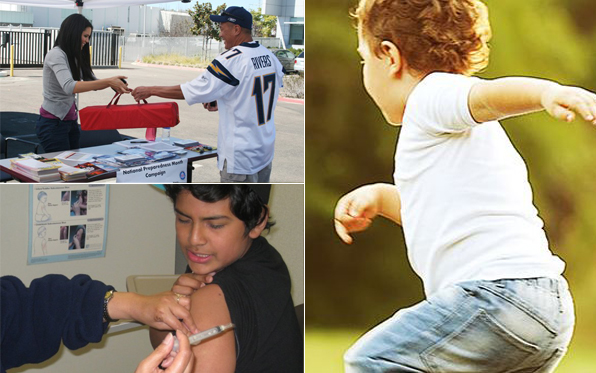It’s a job no one in America wants. But it could be considered one of the most important things you’ll ever do.
It’s estimated one in four San Diego County families is a caregiver for a loved one.
Few are ready when they suddenly find themselves thrust into that role.
“Family caregiver is a job no one applies for,” said Gail Sheehy, a world-renowned author and the keynote speaker at last week’s 2014 Aging Summit. “You’re not expecting to become a caregiver and you’re not prepared or trained for it.”
Sheehy is best known for “Passages,” named one of the ten most influential books of our times by the Library of Congress. She’s written 16 books, including five on passages through different stages of life. “Passages in Caregiving” was released in 2010 and her 17th book, “Daring: My Passages: A Memoir,” is set to be released this September.
“Our initiation (into becoming a caretaker) begins with a call,” said Sheehy. “It’s a call about a fall, or a cardiac arrest or a call about your dad and he’s run a red light, hit someone and he doesn’t remember quite how it happened.
“Your life is about to radically change, and recognizing that is the first hurdle.”
Sheehy said the secret is that no one can do it alone, and people need to be bold in asking for help or advice.
“You must create a circle of care and the most important thing to do is find a doctor you trust.”
That’s where you have to be bold. Ask the doctor if they are willing to be your medical quarterback, Sheehy said.
Ask them:
- Will you help us decide on a care plan?
- Will you help us assemble a care team – including a nutritionist, therapists, even an acupuncturist if necessary?
- Will you help us call the plays?
- Will you help us plan for after-care?
Sheehy likens the journey ahead to entering a labyrinth.
“You can’t see the path ahead – it’s unpredictable,” she said. “It requires patience and faith.”
Another key to successful caregiving is to make sure you take care of yourself, and not just your loved one.
“The demands and uncertainty are constant,” Sheehy said. “It becomes overwhelming.”
Sheehy has experienced this first-hand. She was married to Clay Felker, a well-known journalist and the founder of New York magazine. He was diagnosed with cancer and battled the disease for 17 years before dying in 2008.
Toward the end of her husband’s life, the doctor had a frank talk with Sheehy.
“You’re not the same person I met when we started working together,” the doctor told her. “You’re a writer, not a caregiver.
“You’re playing the role of caregiver now, but what are you going to be when this is over?”
Sheehy recalled it was a real wake up call for her.
The caregiver becomes so consumed in the role that other aspects of their lives fall by the wayside. Many times the person they are caring for is more worried about the caretaker’s future.
“If the caregiver is a spouse or child, the person’s biggest worry is what’s going to happen once they are gone,” she said. “They know where they are going, but they don’t know where you’re going.
“If they know you’re going to pick up the reins of your life, it’s much easier for them to let go.”
Another aspect that can make the life of a caregiver a little easier is making sure everyone in the family plays a role and it’s not all up to the one person actually doing the caregiving.
“Call a family meeting,” said Sheehy. “Lure your sisters and brothers, aunts and uncles in whatever way you can.
“Have a little celebration for a birthday or holiday and then once you have them as a captive audience say to them, ‘let’s talk about mom and dad.’”
It’s best do to that before any emergency situation happens so you can figure out where everyone can contribute, even if they don’t live locally.
“Talk about what each of you can bring to the table,” she said.





